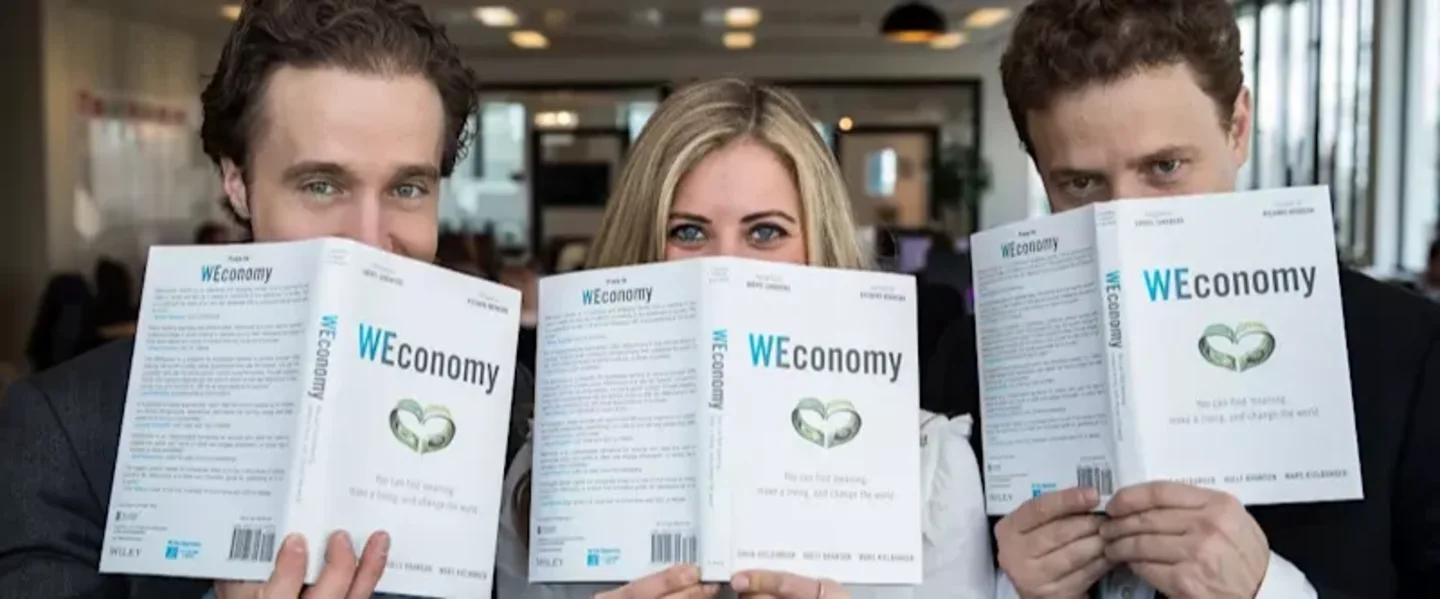Five key insights from WEconomy
It’s been just over a year since I became a first-time author and launched ‘WEconomy: You Can Find Meaning, Make a Living, and Change the World’ alongside my lovely co-authors, Marc and Craig Keilburger.
Becoming an author was one of the proudest moments of my life and an incredibly rewarding experience. It’s also led me to meet with so many wonderful individuals and companies, all on different stages of their purpose journey.
This fills me with hope that, one day, all businesses will be a force for good in the world. As we discovered while writing WEconomy: building a purposeful business is an evolving journey with the ability to create lasting change.
I genuinely believe that businesses are best-placed to answer some of the world’s most difficult social problems. And now, more than ever, consumers have the power and agency to ensure businesses act responsibly.
My dad instilled this ‘business for good’ philosophy in us as kids and it’s deeply embedded in Virgin’s DNA.
Over a decade ago, an amazing team and I were tasked with developing a strategy to embed purpose into everything Virgin does as a business, based on one of Dad's core instincts. The team and I relished the challenge and have learned so much throughout the process.
This process is what drove me to become involved with WEconomy. I wanted to share my experience and provide people with the tangible tools to go out and change the world from Monday to Friday, nine-to-five without sacrificing the bottom-line.
Here are five key insights from WEconomy to get you inspired:
1. No company is an island, immune to the systems that keep societies functioning. The future of social change lies within social enterprise. According to the Edelman Trust Barometer, 80 per cent of global consumers say business must play a role in addressing societal issues.
2. Capitalism can be one of the greatest forces for social change, if it is leveraged properly. An effective way to ensure this is through ‘Impact Investments’ which insist that any money invested generates tangible and measurable social or environmental impacts and financial returns. One of the reasons charitable work is massively undervalued is because people are unwilling to attach metrics to it. You need to be able to show measurable ROI.
3. Trust and reputation are precious commodities in today’s market. Companies that do good are more likely to be trusted. In the age of ad fatigue, showing customers you care about their issues and acting responsible is an effective way to tackle the trust deficit.
4. Embrace youth. Over half of the world’s population is under 30. This is a generation who have an unprecedented opportunity and capacity to innovate new solutions and scale new movements to drive positive change. It is also a generation that has inherited a raft of global challenges – from climate change to increasing inequality and rising intolerance. This is a generation of activists who expect businesses to be held accountable for their impact and to be involved in the solution.
5. Everyone can and should be a ‘Social Intrapreneur’. Regardless of your job title, you make decisions in your role every single day and, as an individual, you can use purpose to drive those decisions. You have agency. In the epilogue of WEconomy, Dad says we should always agitate the companies we work for to embed purpose into their DNA.
WEconomy provides a sustainable economic model and the blueprint that companies, charities, social enterprises and individuals need to make a difference.I may be a tad biased, but if you haven’t read it yet, I would genuinely recommend you do!
I hope you found these tips insightful and are feeling inspired to go out there and make a difference.








